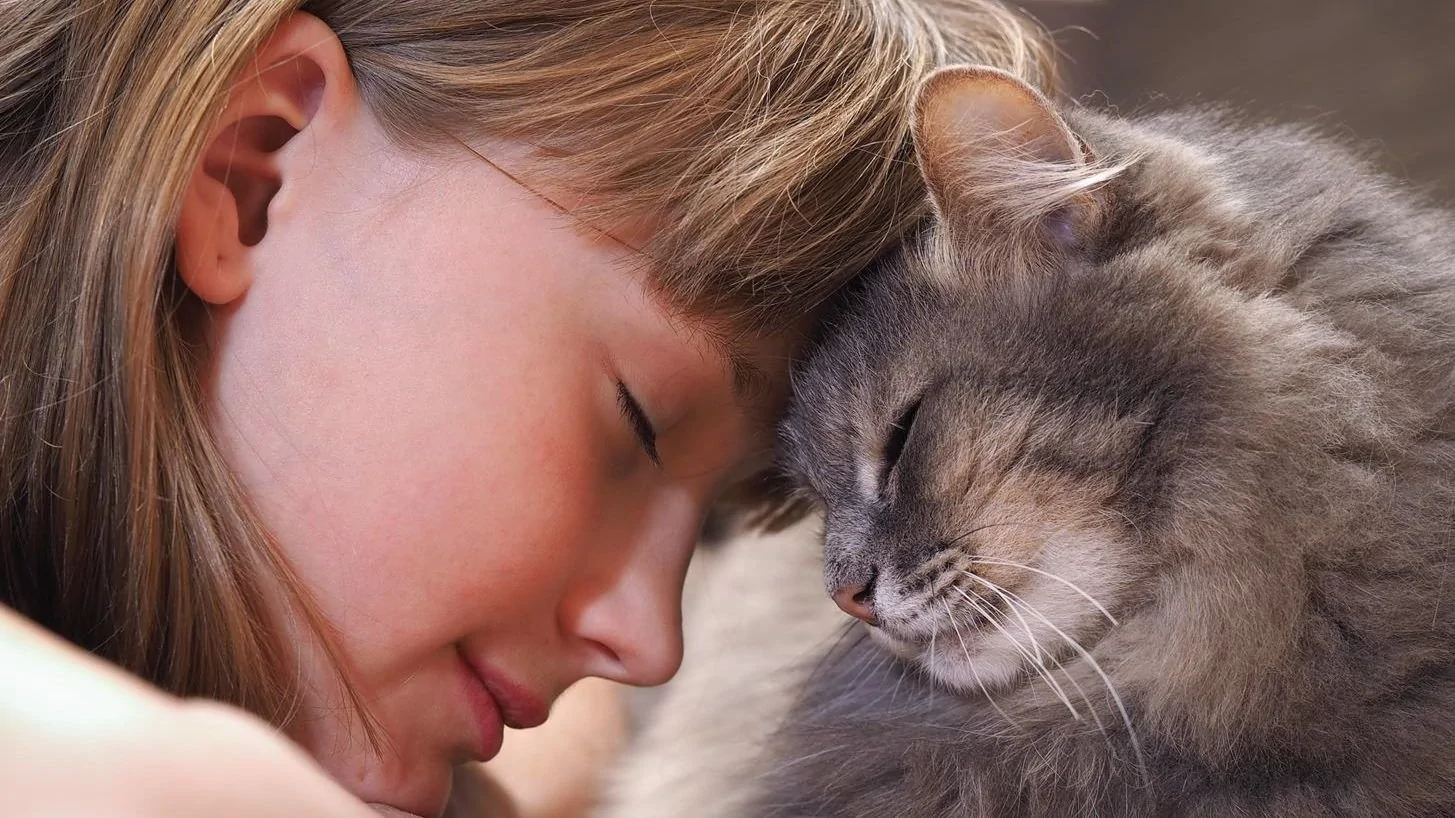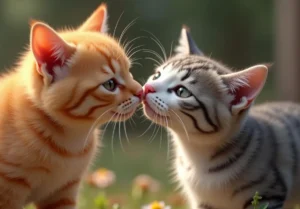Disclosure: We may earn a commission from helpful, relevant links in our content. No cost to you. See our privacy policy.
If you’ve ever wondered why your cat seems obsessed with rubbing their face on everything, you’re not alone.
Cats have a unique way of communicating and claiming their territory through scent marking, and understanding this behavior can help you better connect with your feline friend.
We’ll be looking into the world of scent marking and head bunting, and uncover the secrets behind these seemingly quirky, but common behaviors, and how they play a significant role in your cat’s life.
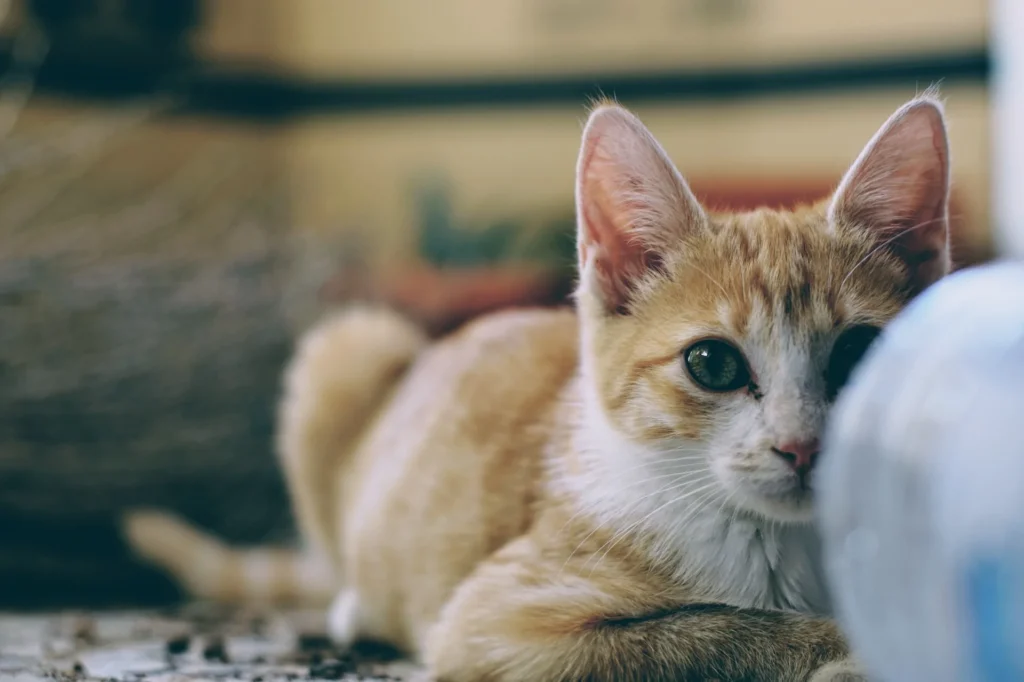
The Importance of Scent Marking in Cats
Scent marking is an essential aspect of feline communication, serving a variety of purposes from establishing territory to strengthening social bonds.
By examining the ways our furry friends use scent marking, we can better understand their motivations and emotions.
Territory Marking
Cats are territorial animals, and scent marking helps them claim their space and communicate their presence to other cats.
When your cat rubs their face or scratches objects around your home, they’re depositing pheromones that tell other cats, “This is my turf.”
By understanding this behavior, you can help create a harmonious environment for several cats who may be sharing their living space, especially males.
Social Bonding
Scent marking isn’t just about territory – it’s also a way for cats to create and maintain social bonds.
Cats have scent glands on their cheeks, which produce pheromones that can promote a sense of comfort and familiarity among feline companions.
By scent-marking each other or their environment, cats create a shared scent profile that helps strengthen their social bonds and foster a sense of belonging.
Head Bunting: A Sign of Affection
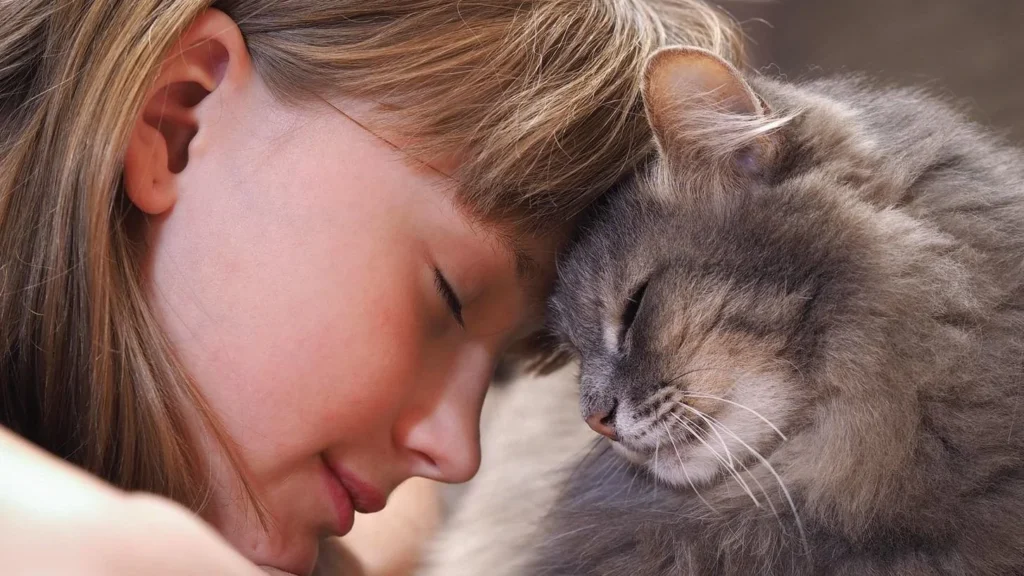
Head bunting, or headbutting, is another form of scent marking that many cat owners cherish. This endearing behavior is a sign of affection and trust between you and your feline companion.
Let’s dive deeper into the reasons behind this behavior and how you can respond to your cat’s heartwarming gesture.
Why Do Cats Head Bunt?
Head bunting is a way for cats to leave their scent on you, which serves multiple purposes.
By marking you with their scent, your cat is claiming you as part of their “family” and territory.
Moreover, head bunting strengthens the bond between you and your cat as it creates a shared scent profile, which is reassuring and comforting to them. In essence, when your cat head bunts you, they’re saying, “You’re mine, and I trust you.”
Responding to Your Cat’s Bunting Behavior
When your cat head bunts you, it’s essential to respond positively and reinforce their trust in you. Here are some tips on how to react when your cat does this:
- Pet your cat. Gently stroke your cat’s head and neck when they bunt you. This shows them that you appreciate their affection, and it helps strengthen your bond.
- Use a gentle voice. Speak softly and lovingly to your cat during and after they head bunt you. Cats are sensitive to tone, and a gentle voice will convey that you’re happy with their display of affection.
- Offer treats. Occasionally rewarding your cat with a treat after they head bunt you can reinforce this positive behavior and further deepen your connection.
- Respect their boundaries. If your cat seems uninterested in head bunting or stops midway, don’t force them. Cats have their own unique personalities and preferences. Respecting their boundaries will ensure that they feel comfortable and safe with you.
Once you know what head bunting means and how to respond to it appropriately, you’ll be nurturing a loving and trusting relationship with your companion.
Other Scent Marking Behaviors
Cats use various methods of scent marking to communicate with one another and establish their presence in their environment. Let’s explore some additional scent-marking behaviors that you may notice in your kitty.
Cheek Rubbing
Cats have scent glands in their cheeks, and rubbing their cheeks against objects or people is another way for them to mark their territory.
This behavior is called bunting, just like head bunting, and it serves to spread their scent, claim their space, and create a comforting and familiar environment.
Scratching
Scratching is another scent marking behavior that has multiple functions.
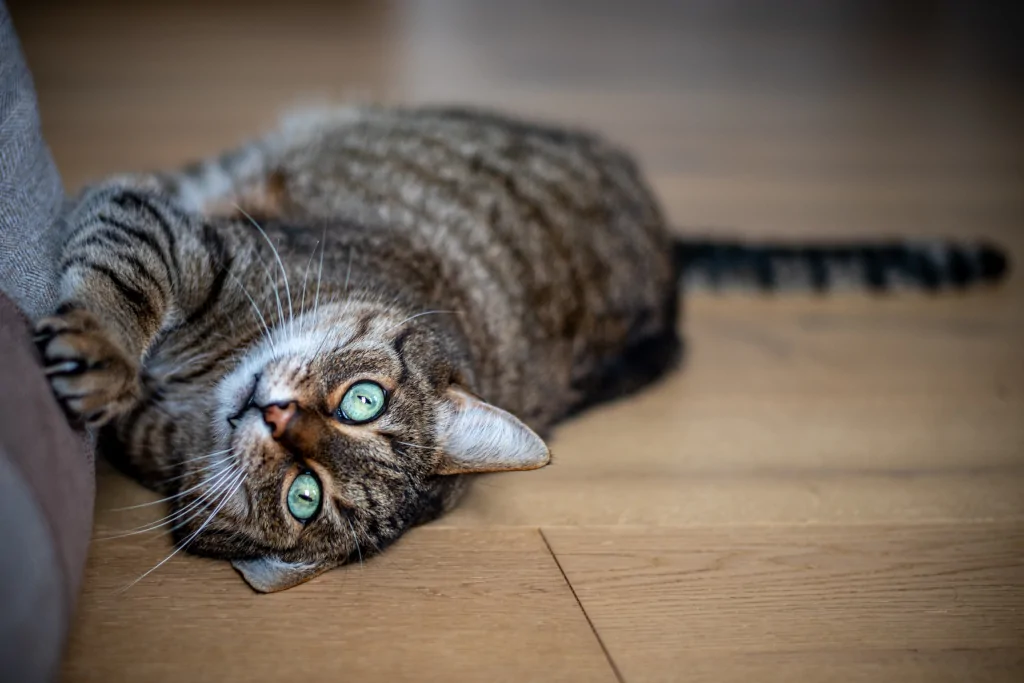
Cats have scent glands in their paw pads, and when they scratch surfaces, they release their scent. Scratching also helps cats maintain their claws and stretch their muscles.
Oftentimes, cats will overdo it, or scratch your furniture or carpet a bit too much. For the first one the solution is the scratching post. For the carpet, visit this guide.
Urine Spraying
Urine spraying is a less pleasant form of scent marking used by cats to establish territory boundaries or communicate stress.
This behavior is more common in unneutered male cats but can occur in females as well. It’s essential to identify the underlying cause of spraying and address it to discourage this behavior.
FAQs
Why does my cat rub its face on objects?
Cats rub their faces on objects to mark their territory and create a comforting environment by spreading their scent using the scent glands in their cheeks.
How can I stop my cat from urine marking?
To stop your cat from urine marking, address the underlying cause of stress, clean soiled areas thoroughly, and consider neutering your cat if they’re not already altered.
Is scent marking a sign of dominance in cats?
Scent marking in cats is not necessarily a sign of dominance. It’s more about establishing territory boundaries, creating a familiar environment, and communicating with other cats.
Why do some cats head bunt more than others?
Some cats may head bunt more frequently due to their individual personalities and preferences, their level of attachment to their human companions, or even as a learned behavior that gets them positive attention.
Alex, a passionate animal lover, has experience in training and understanding animal behavior. As a proud pet parent to two dogs and three cats, he founded AnimalReport.net to share insights from animal experts and expand his knowledge of the animal kingdom.

